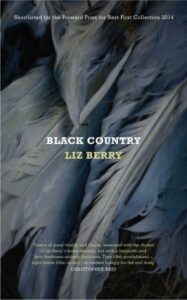We are reading Boy In Various Poses by Lewis Buxton. We hope you’ll join us in reading the book and joining the conversation – find out more about all the ways that you can get involved.
Boy In Various Poses tender collection of poems looks at the many different sides of boyhood – its vulnerability and bravado, emotion and humour. It won the Book by Cover Award for its stunning cover art by Anita Staff at the East Anglian Book Awards 2021.
Here we share a writing exercise inspired by Lewis Buxton’s process for creating the poems in the collection, focusing on pairing something you know a lot about with something intangible and abstract. While this exercise is written with poetry in mind, the approach could be adapted for writers of fiction and non-fiction.
Let us know how you get on over on our Discord community. Happy writing!
I write this on a Sunday morning whilst across the road, in the park, men arrive at the church of grass in congregations of twenty-two and play rather than pray. I have always wanted to write about Sunday League 11-a-side; to write the mud and power, the blood and grass, the sweat and appeals to God as to why the ball shifted last minute and hit the cross bar.
I grew up playing football but always thought it was mutually exclusive from poetry. How do you think hard about a game that is so instinctive? How do you make new the language of a sport that is splattered in cliché? How can a poem so suited to holding one moment in its gloved hands, possibly describe a football game where hundreds of things happen at once? For years I tried to write this game but poetry for me has often been about answering questions, exploring things I do not understand: boyhood, sexuality, fathers. Football, on the other hand, is something I know very well: I know the history of the offside rule, I know why we say a goal is ‘scored’, I know how to kick with the inside of my foot when passing and with the bit just below my big toe when shooting. To be clear, I am not good at football. I think even my harshest poetry critics would agree I am better at sonnets that penalties, but my point is I don’t really have many questions about the sport. So how do I write about it? The answer, I think, is to make football strange and mysterious again.
There were two poems, a double pivot in the midfield of my reading, that helped me write ‘The Cuckoos’. Liz Berry’s ‘Bird’ and Zaffar Kunial’s ‘Fielder’. I watched Berry transform women into birds in her poem, the slow, gentle but visceral metamorphosis that formed the concept for my poem. This coupled with Kunial’s perspective as the eponymous fielder, concentrating on a moment of stillness in a game where so much else is going on, gave me the perfect marriage of concept and content. Here is a version of my process for writing ‘The Cuckoos’ I hope will help you write something of your own.
- Choose a subject you know a lot about (Subject 1): football, dance, cooking, quantum biology.
- Write down a list of all the words you can think of do with it: knife, fork, spoon, pot, oven, food, onion, chop, boil etc etc.
- Now choose a subject you know nothing about (Subject 2): ornithology, the Island of Crete, window cleaning.
- Write down a list of all the words you think might be to do with it (even Google if you want to): bird, feather, binoculars, watching, nerds, anoraks.
- Write a piece about Subject 1. You are not allowed to use any of the words you wrote down. You can, however, use the words you wrote down for Subject 2 if you want to.
- Once you’ve written your first draft, you can go back and decide how many of the Subject 1 words you want/think you need to include.
Recommended reads…
 Black Country by Liz Berry Chatto & Windus (2014)
Black Country by Liz Berry Chatto & Windus (2014)
In Black Country, Liz Berry takes flight: to Wrens Nest, Gosty Hill, Tipton-on-Cut; to the places of home. The poems move from the magic of childhood – bostin fittle at Nanny’s, summers before school – into deeper, darker territory: sensual love, enchanted weddings, and the promise of new life.
 Us by Zaffar Kunial Faber & Faber (2018)
Us by Zaffar Kunial Faber & Faber (2018)
From the beginning, the poet was a wanderer, a storyteller, an imaginer of bridges between worlds. Zaffar Kunial is just such a poet and guide for us today. Yet his territory extends much further afield than those of the past – through Kashmir, where his father was born and now lives, to the Midlands of his mother’s birth, and further north to ancestors in Orkney, as well as through language, memory and time.
Image: ROMAN ODINTSOV from Pexels
